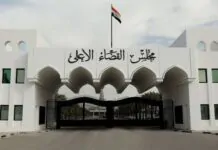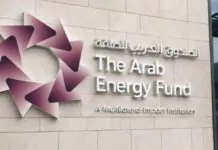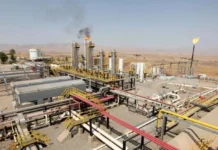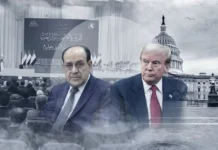Tishwash: Al-Ziyadi: The government is either unable or deliberately obstructing the submission of the 2025 budget schedules.
MP Mohammed Al-Ziyadi accused the government on Thursday of being unable or deliberately delaying the sending of the 2025 budget tables to the House of Representatives, which led to a paralysis in the provision of services to citizens.
Al-Ziyadi said in a statement to Al-Maalouma Agency, “The government is either unable or is creating obstruction by not sending the approved budget tables to the House of Representatives,” adding that “all local governments today are unable to provide services to their people due to the absence of a budget and the failure to approve its tables.
” He called on “the Prime Minister to assume responsibility and send the budget tables to Parliament as soon as possible, stressing that “the ball is now in the Prime Minister’s court, and his government must act quickly so that citizens can see the services they deserve.”
It is noteworthy that the House of Representatives had previously hosted the Minister of Finance to discuss the budget tables and the reasons for the delay in sending them. link
Tishwash: Parliamentary Finance: Current revenues are sufficient to cover the salaries of central and regional employees and retirees.
Parliamentary Committee Chairman MP Atwan Al-Atwani stated, “There is still no real ceiling for the budget deficit. This is because expenditures and revenues have yet to be studied to determine the overall budget deficit ceiling.”
Al-Atwani explained in a statement (published by Al-Masry today, Thursday 7/24/2025), that “the Ministry of Finance, along with other ministries, is currently working on solutions after adding stalled projects and projects to relieve bottlenecks, to indicate the new obligations included in the 2025 budget.”
He explained that “Iraqi oil sales on the global market are currently sufficient to cover the salaries of employees and retirees, but the irregular flow of cash may cause delays in paying those salaries,” noting that “current revenues are sufficient to cover the salaries of all employees and retirees in the central government and the Kurdistan Region.”
The head of the Parliamentary Finance Committee reiterated that “employee rights are fully protected and secured, and that once the budget schedules are approved, bonuses and promotions will be issued and will take effect from the date of issuance of the relevant orders.”
The Parliamentary Finance Committee settled the controversy surrounding the budget deficit ceiling reaching approximately 83 trillion dinars, while reassuring employees and Parliamentary Committee Chairman MP Atwan Al-Atwani stated, “There is still no real ceiling for the budget deficit. This is because expenditures and revenues have yet to be studied to determine the overall budget deficit ceiling.”
Al-Atwani explained in a statement (published by Al-Masry today, Thursday 7/24/2025), that “the Ministry of Finance, along with other ministries, is currently working on solutions after adding stalled projects and projects to relieve bottlenecks, to indicate the new obligations included in the 2025 budget. link
****************
Tishwash: Worth $100 billion: Iraq’s “mysterious wealth” on three continents revealed
The British website ” Amwaj ” reported on Thursday that Iraq is facing major challenges and complications in recovering “lost properties” in Asian, African and European countries, estimated at a value of approximately $100 billion. It confirmed that these properties include palaces and villas located in France, Italy, Spain and Britain, “tea, rubber and tobacco” plantations in Malaysia, Sri Lanka and Vietnam, an oil refinery in Somalia, in addition to agricultural lands in Nigeria and Yemen .
The website indicated in a report translated by Shafaq News Agency that “the Iraqi parliament’s Foreign Relations Committee launched an initiative in June to recover billions of dollars in state assets believed to be scattered across Africa, Asia, and Europe. This move came just weeks after Somali President Hassan Sheikh Mohamud informed his Iraqi hosts during the recent Arab Summit that an oil refinery built by the Iraqis outside Mogadishu in 1974 was still intact, but had long been neglected .”
According to the report, “The news of the neglected oil facility prompted Iraq to deeply reevaluate its efforts to access the country’s long-neglected foreign assets. During the global oil boom, and after Baghdad nationalized its oil industry in 1972, Iraq made a wide range of acquisitions and investments, including luxury real estate in Europe, farms in Asia, refineries in Africa, and other projects aimed at expanding Iraq’s economic influence, diversifying its resources, and strengthening diplomatic relations under the rule of former President Saddam Hussein .”
The report continued, “After the imposition of international sanctions in the 1990s, many of these assets were suddenly frozen, and the situation became more opaque after a large portion of these assets disappeared from Iraqi records following the 2003 invasion. Stolen archives, destroyed documents, and fraudulent transfers to private entities created a legal ambiguity surrounding these assets .”
He pointed out that “efforts to recover these properties and assets began in the mid-2000s, with more than $2.5 billion in frozen funds likely recovered, but physical assets have been largely ignored.” He explained that “there is speculation that many properties have been sold illegally, while others appear to have been neglected or fallen under the control of other individuals or entities, sometimes even armed groups .”
The report noted that “in many cases, the Iraqi state is no longer aware of these assets, leading to what lawmakers and local media have dubbed ‘forgotten wealth.'” In 2021, the Parliamentary Integrity Committee estimated that up to $240 billion in public funds, including foreign assets, had been smuggled abroad or even embezzled .
He noted that “Iraqi lawmakers now estimate that at least 50 major assets abroad remain unaccounted for, believed to be worth between $80 and $90 billion, although some estimates put the value at as high as $100 billion.” He added that “the news of the Iraqi oil refinery near Mogadishu has raised concerns among Iraqi lawmakers about the need to do more to address the state’s neglected assets abroad. The House of Representatives has also called on the Ministry of Foreign Affairs to take urgent steps to identify and recover foreign assets and investments .”
The report added, “While a special parliamentary investigation committee was formed to follow up on the issue and coordinate with relevant ministries, the Iraqi government launched a global search campaign and tasked a group of government agencies with verifying ownership, addressing legal obstacles, and facilitating its recovery. Meanwhile, the authorities launched a project to map historical assets to rebuild Iraq’s foreign portfolio, drawing on embassy records and the expertise of retired diplomats. The ultimate goal of these steps is to prepare a comprehensive master list of state assets and direct diplomatic and legal efforts to recover them .”
He pointed to “major obstacles, including property disputes, as legal ownership documents may become ambiguous over time, or the occurrence of illegal sales, which will force Iraqi authorities to provide conclusive evidence for their cases before foreign courts,” adding that “the situation has become more complicated with the loss or theft of original documents after the collapse of the regime in 2003. “
The report stated that “nullifying some unauthorized transactions may require lengthy legal battles. Iraq does not guarantee diplomatic cooperation from host countries, as some governments are believed to have shown reluctance or slowness in providing assistance. There are also complications related to the fact that some armed groups or informal settlers have occupied properties in the area,” calling on Iraqi authorities to “press hard to regain control of foreign assets .”
“With federal government revenues estimated at 147.8 trillion Iraqi dinars ($123.2 billion) in 2024, more than 90% of which are oil revenues, recovering 10% of this lost wealth abroad could help bolster Iraq’s public budgets,” she explained. “This issue will test the seriousness of ongoing efforts in the coming months. If successful, Iraq will have succeeded in diversifying the economy and strengthening public confidence in governance. It will also signal a broader shift in how Iraq confronts its long and ongoing legacy of corruption and mismanagement link






